Jin-woo Lee
Accurate and Fast Federated Learning via IID and Communication-Aware Grouping
Dec 09, 2020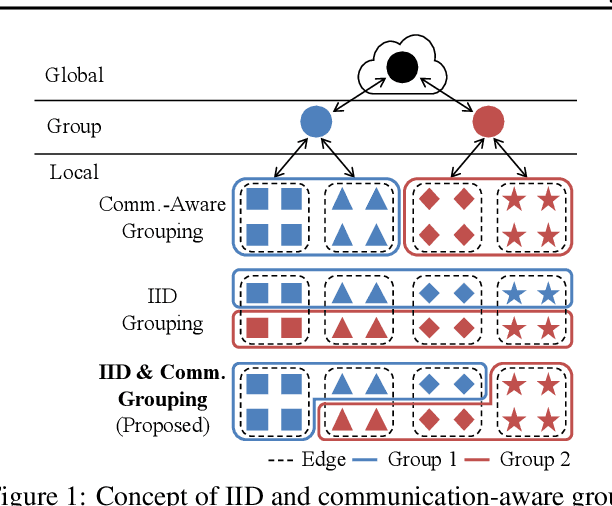
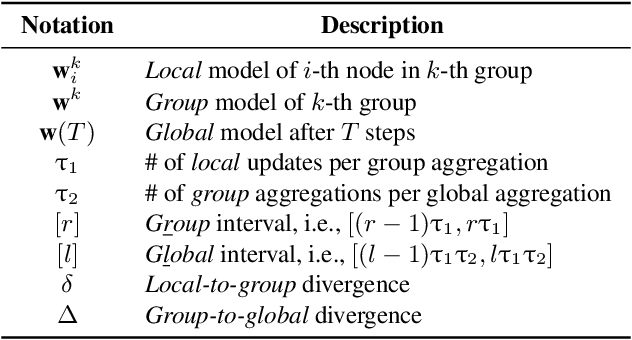
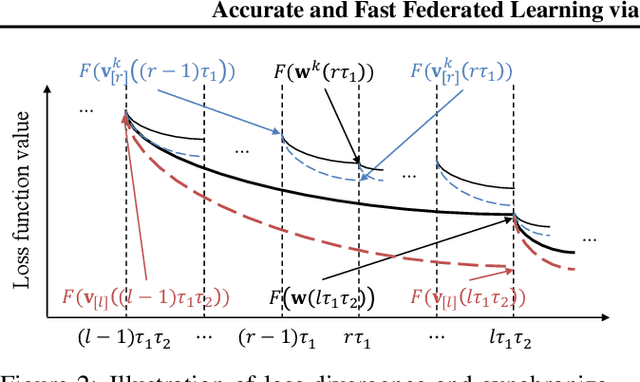
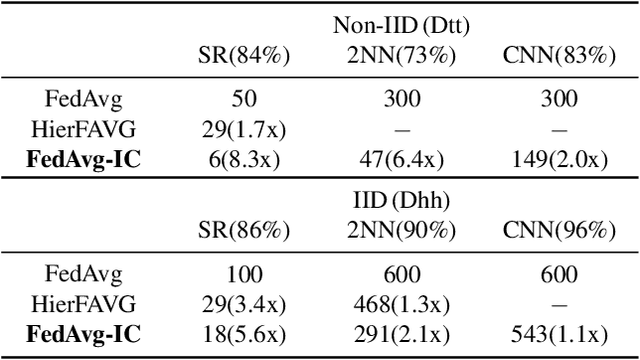
Abstract:Federated learning has emerged as a new paradigm of collaborative machine learning; however, it has also faced several challenges such as non-independent and identically distributed(IID) data and high communication cost. To this end, we propose a novel framework of IID and communication-aware group federated learning that simultaneously maximizes both accuracy and communication speed by grouping nodes based on data distributions and physical locations of the nodes. Furthermore, we provide a formal convergence analysis and an efficient optimization algorithm called FedAvg-IC. Experimental results show that, compared with the state-of-the-art algorithms, FedAvg-IC improved the test accuracy by up to 22.2% and simultaneously reduced the communication time to as small as 12%.
Accurate and Fast Federated Learning via Combinatorial Multi-Armed Bandits
Dec 06, 2020
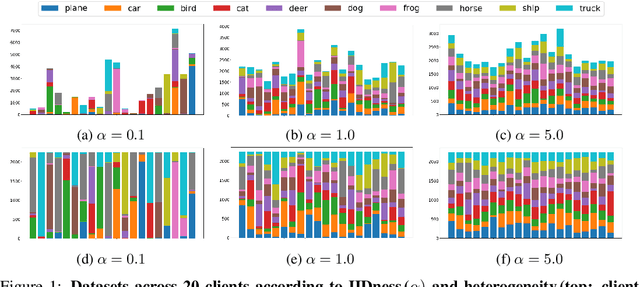
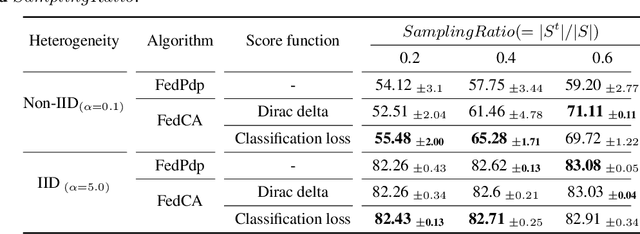
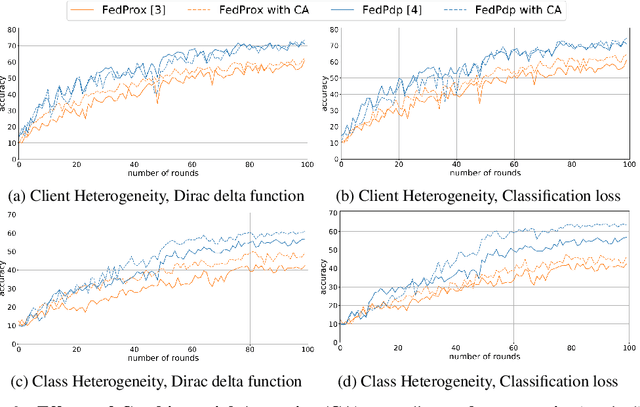
Abstract:Federated learning has emerged as an innovative paradigm of collaborative machine learning. Unlike conventional machine learning, a global model is collaboratively learned while data remains distributed over a tremendous number of client devices, thus not compromising user privacy. However, several challenges still remain despite its glowing popularity; above all, the global aggregation in federated learning involves the challenge of biased model averaging and lack of prior knowledge in client sampling, which, in turn, leads to high generalization error and slow convergence rate, respectively. In this work, we propose a novel algorithm called FedCM that addresses the two challenges by utilizing prior knowledge with multi-armed bandit based client sampling and filtering biased models with combinatorial model averaging. Based on extensive evaluations using various algorithms and representative heterogeneous datasets, we showed that FedCM significantly outperformed the state-of-the-art algorithms by up to 37.25% and 4.17 times, respectively, in terms of generalization accuracy and convergence rate.
TornadoAggregate: Accurate and Scalable Federated Learning via the Ring-Based Architecture
Dec 06, 2020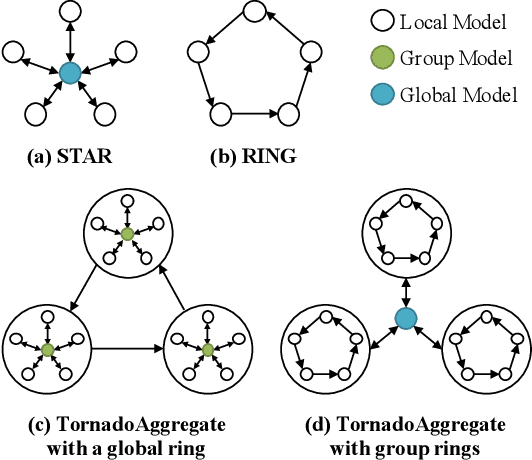
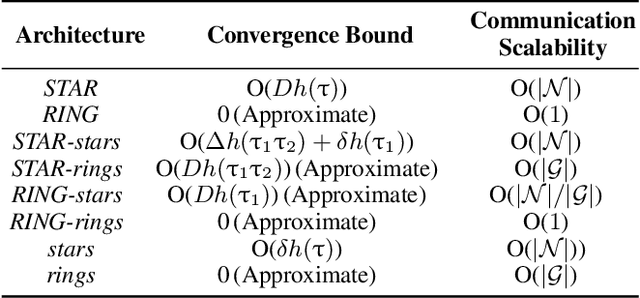
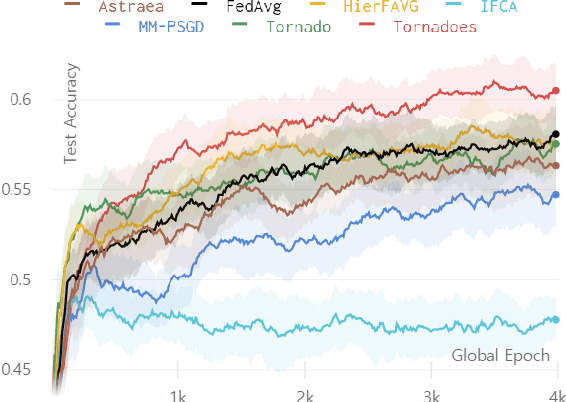
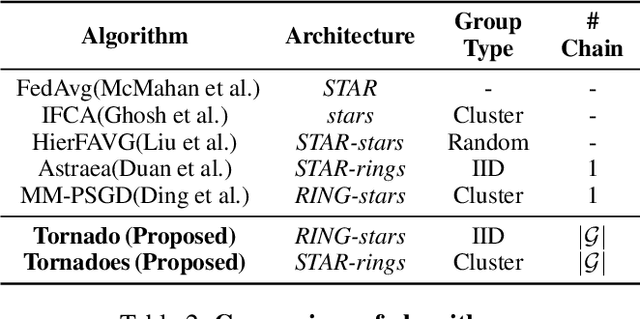
Abstract:Federated learning has emerged as a new paradigm of collaborative machine learning; however, many prior studies have used global aggregation along a star topology without much consideration of the communication scalability or the diurnal property relied on clients' local time variety. In contrast, ring architecture can resolve the scalability issue and even satisfy the diurnal property by iterating nodes without an aggregation. Nevertheless, such ring-based algorithms can inherently suffer from the high-variance problem. To this end, we propose a novel algorithm called TornadoAggregate that improves both accuracy and scalability by facilitating the ring architecture. In particular, to improve the accuracy, we reformulate the loss minimization into a variance reduction problem and establish three principles to reduce variance: Ring-Aware Grouping, Small Ring, and Ring Chaining. Experimental results show that TornadoAggregate improved the test accuracy by up to 26.7% and achieved near-linear scalability.
 Add to Chrome
Add to Chrome Add to Firefox
Add to Firefox Add to Edge
Add to Edge